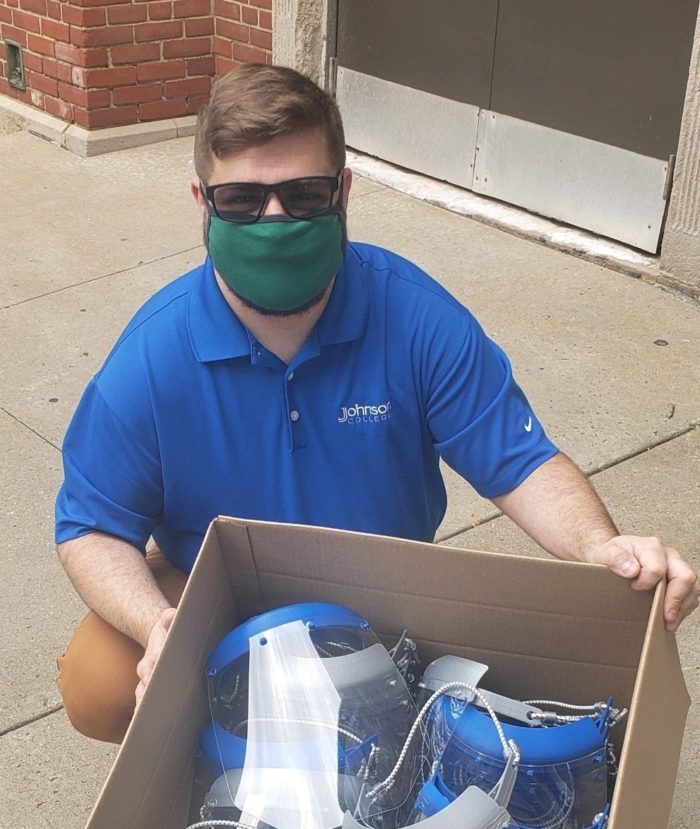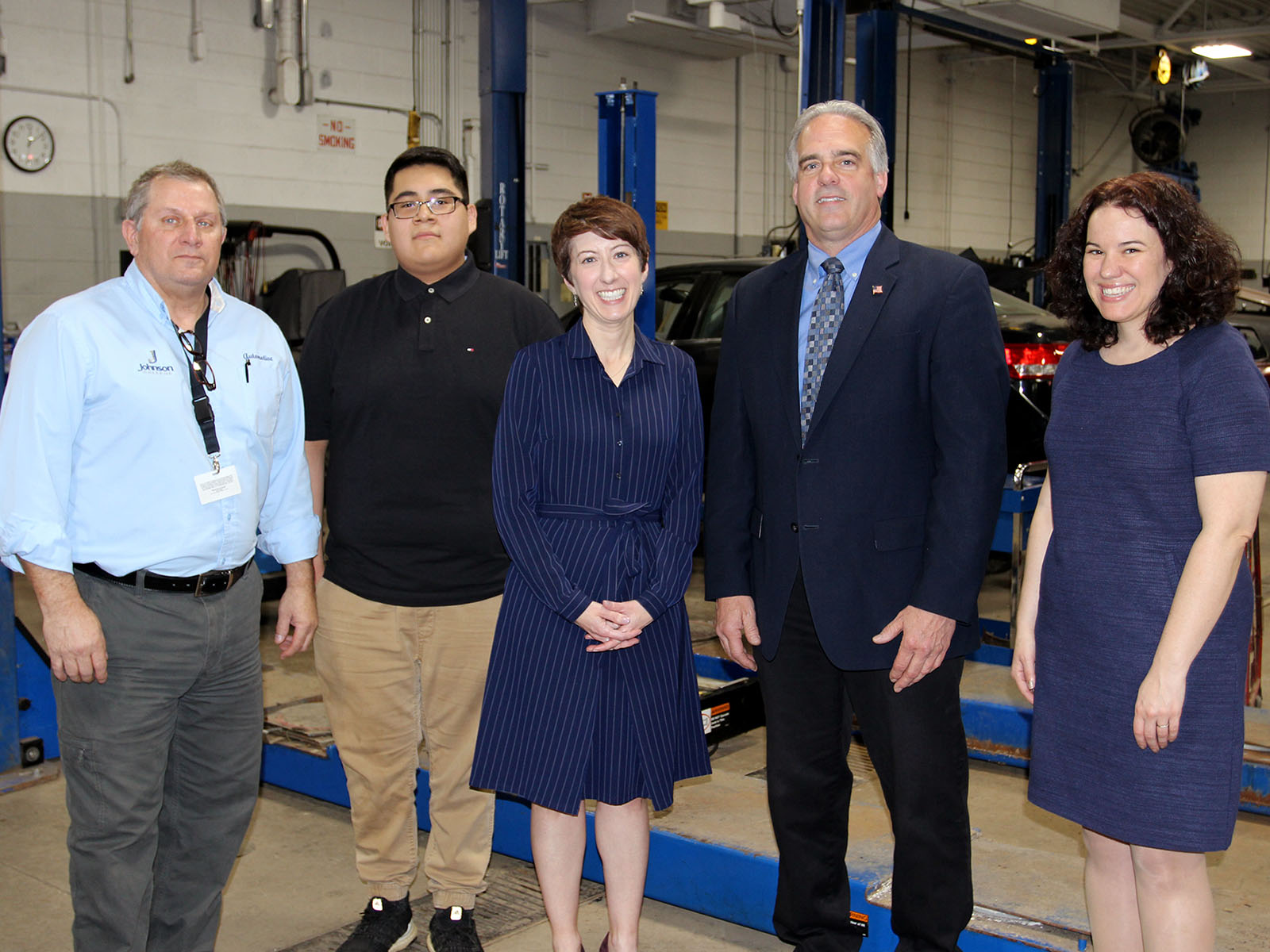Johnson College’s Advanced Manufacturing Program Director Cole Goldstein printed face shields at his home studio to donate to local hospitals.
Chief Administrative Officer Mike Novak received an article from Maureen Brennan of Crew Systems about how individual Makers can create small quantities of shields using open source 3-D printing files and donate them to medical facilities. Novak, said, “The idea behind this is that although one person can only make a small amount of PPE, if multiple makers are creating that same amount, it will make a dent in the urgent need for this type of PPE in the medical field.”
Novak coordinated with Goldstein, who was already interested in starting this project. Working with PLA Plastic material that is used in 3-D printing classes at the College and industry-grade Polycarbonate from Grainger, Goldstein printed 100 masks total to donate. Goldstein delivered masks to Regional Hospital of Scranton and Geisinger Community Medical Center.
Visit https://johnson.edu/divisions-of-study/electronic-industrial/advanced-manufacturing-engineering-technology/ to earn more about Johnson College’s Advanced Manufacturing Technology program.














